New Zealand celebrates crashing housing market
A decade ago, soaring New Zealand home prices were “freaking people out, especially in Auckland”, claims Catherine Masters at One Roof.
“The headlines were relentless in stories of despair by first-home buyers shut out of the market, and that was before Covid became a household name and prices went higher still”, Masters wrote.
“Back in the Auckland of 2014, competition was already fierce in the auction rooms. Investors were falling over each other to buy and migrants were pouring into the country”.
The following chart from Justin Fabo at Antipodean Macro shows that New Zealand dwelling values have declined by around 17% from their 2021 peak, with heavy declines recorded across all major markets.
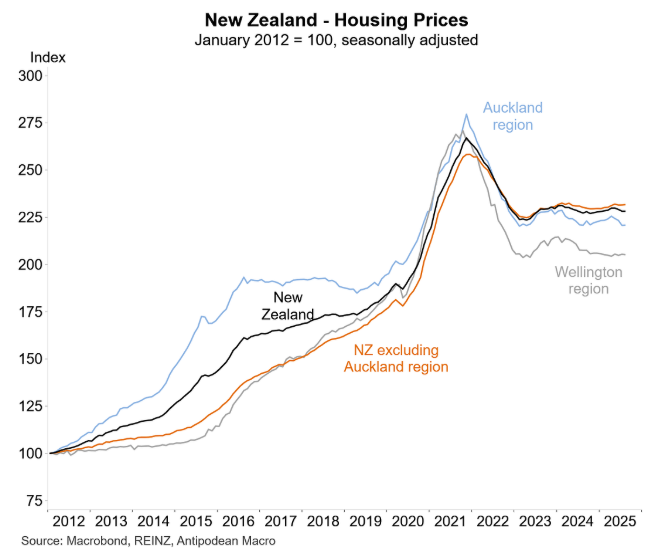
In real inflation-adjusted terms, New Zealand dwelling values nationally have fallen back to late-2019 levels.
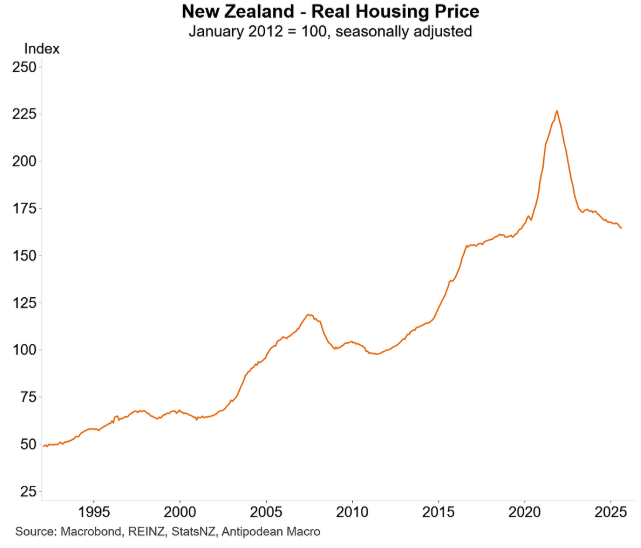
As a result, housing affordability in New Zealand is rapidly improving.
“It means improved housing affordability for young people”, noted independent economist Tony Alexander. “Frankly, this is sort of what many of us were hoping for in the past three decades—a better environment for first-time buyers to buy themselves their first property, start forming their family, all that sort of stuff”.
“I think it’s going to take a while for people to figure that out”, Alexander added. “This is no longer an investor-driven residential real estate market in New Zealand”.
“It’s driven by the first-time buyers who have been active since the March quarter of 2023. They remained active but the investors – not really”, he said.
Indeed, the following chart from Justin Fabo shows that New Zealand’s median dwelling price-to-income ratio has fallen back to a decade low—not necessarily “affordable”, but a major improvement from 2021.
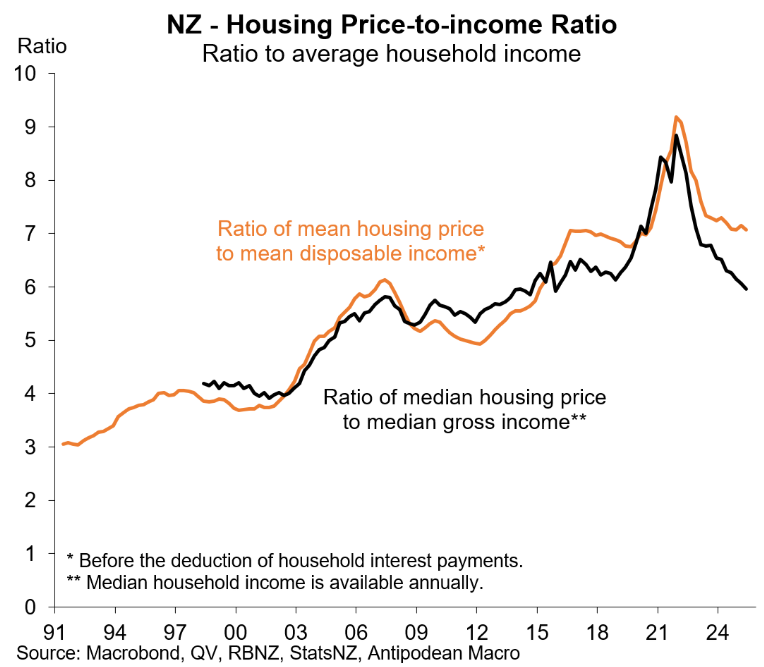
Mortgage repayment affordability—a combination of home prices and rents—has also fallen to a similar level as 2010.
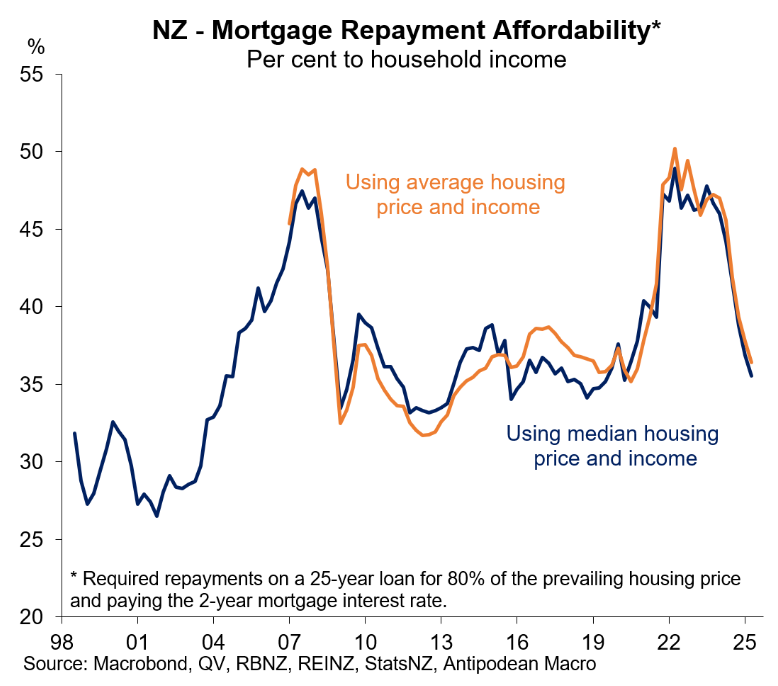
New Zealand’s rental market is also becoming rapidly more affordable.
According to data from property web portal realestate.co.nz, rental prices have fallen to their lowest level in two years.
The average weekly rental price declined by 3% to $628 per week from a year ago.
The most significant drops were in urban areas, with Wellington leading the way with an 11.8% decrease in average rent. Rents in Auckland and Canterbury declined by 2.3% and 2.1%, respectively.
Rental bond data collected by Tenancy Services also shows that New Zealand rents are falling.
The decline in rents follows the sharp decline in net overseas migration to New Zealand. Only 13,066 net overseas migrants arrived in New Zealand in the year to July, well below the decade average of 49,000 and more than 120,000 lower than the late 2023 peak.
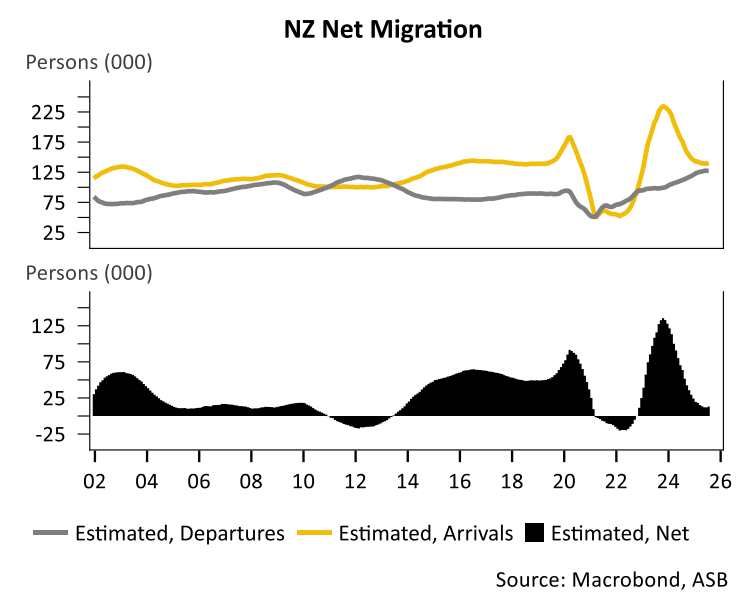
A survey released in March 2023 showed that falling home prices were viewed with more optimism than concern by most New Zealanders.
Seventeen percent of the survey’s respondents are worried about falling house prices, but 48% feel neutral about them, while 32% are optimistic about them.
Among the 18 to 24 and 25 to 34-year-old groups, optimism was particularly pronounced, at 53% and 43%, respectively.
It is hard to view improving housing affordability in New Zealand, both to purchase and to rent, as anything other than positive.
Unlike in Australia, shelter—a fundamental human need—is becoming more affordable in New Zealand, meaning Kiwis are now required to spend a smaller share of their earnings to simply put a roof over their heads.
